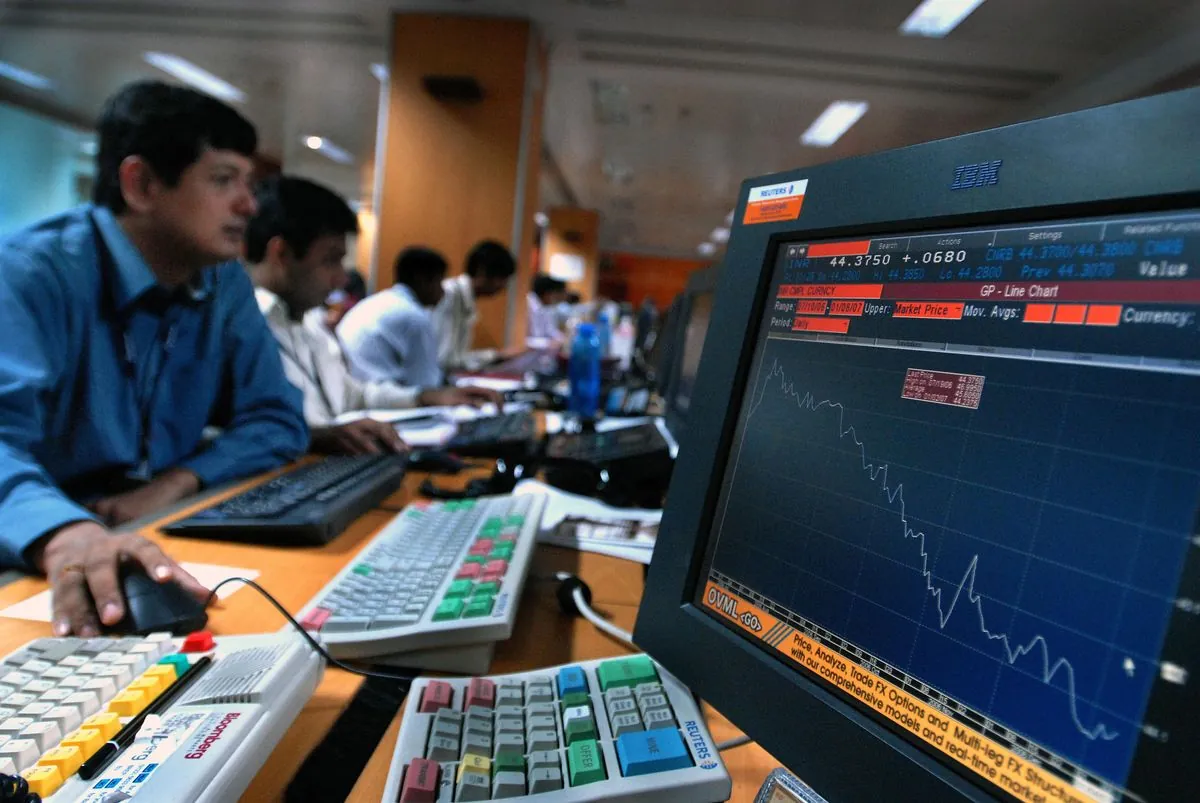Indian Equity Funds Boost Cash Holdings to 5-Year High Amid Market Concerns
Indian equity funds increase cash allocations to a 5-year high, reflecting concerns about market overvaluation and macroeconomic risks. Fund managers express caution despite strong market performance.

Indian equity funds have significantly increased their cash holdings, reaching a 5-year high by the end of August 2023. This shift reflects growing concerns among fund managers about market overvaluation and various macroeconomic risks, including uncertainties surrounding U.S. elections and Chinese economic growth.
According to Morningstar data, active equity funds in India with a value of at least $1 billion held an average of 5.39% of their portfolios in cash as of August 2023. This represents the highest level of cash allocation in five years, indicating a cautious approach by fund managers.
Sonam Srivastava, founder and fund manager at Wright Research, explained the rationale behind this trend: "While the market has been performing well, there are potential risks such as economic slowdown, interest rate regime change, geopolitical tensions and market overvaluation."
The increase in cash levels can be attributed to various factors, including inflows and the launch of new funds. However, caution remains a significant driver of this trend. Mahesh Patil, chief investment officer at Aditya Birla Sun Life Asset Management Company, suggested that elevated cash levels might indicate expectations of a potential stock market correction.

Fund managers' concerns are further fueled by the lackluster earnings growth observed in the first quarter of the fiscal year 2023. More than half of Indian companies failed to meet consensus earnings expectations during this period, raising questions about current market valuations.
Abhishek Goenka, founder and chief executive of IFA Global, highlighted the valuation concerns: "There are valuation concerns as pockets of markets are looking over-stretched." The forward price-to-earnings (P/E) ratio for MSCI India's large-cap index stands at 22.8 times, representing an 18.6% premium to the 10-year average. Mid-cap and small-cap indices are trading at even higher premiums compared to their respective 10-year averages.
Several prominent funds have significantly increased their cash allocations:
- ICICI Prudential Value Discovery Fund ($5.9 billion): Cash allocation increased from 7% to 14.7%
- SBI Long Term Equity Fund ($3.3 billion): Cash holdings rose from 4.46% to 9.8%
- Quant Small Cap Fund ($3 billion): Cash allocations surged from 2.15% to 15.7%
Despite these cautious moves, some analysts believe that high cash levels may not necessarily indicate an imminent market crash. Sonam Srivastava of Wright Research suggested that the market might experience smaller corrections of 3-5%, which could be quickly bought into as cash gets deployed.
It's worth noting that India's stock market has shown remarkable resilience in recent years. The market capitalization crossed $3 trillion in 2021, and the mutual fund industry's Assets Under Management (AUM) exceeded ₹40 trillion in 2023. The popularity of Systematic Investment Plans (SIPs) has also grown, with monthly inflows surpassing ₹10,000 crore in 2023.
As the Indian stock market continues to evolve, investors and fund managers alike will need to navigate the complex landscape of opportunities and risks. The current trend of increased cash holdings reflects a prudent approach in the face of uncertain market conditions, balancing the potential for growth with the need for caution.


































